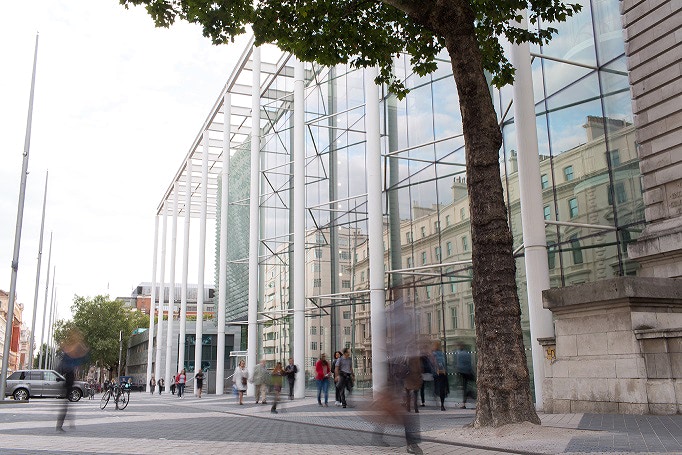Imperial College Business School celebrates #WorldMentalHealthDay 2019

Taking positive actions within your sphere of control can ease climate-based anxiety
A podcast on eco-anxiety, community ‘tea and talk’ events, and social support were some of the ways Imperial marked World Mental Health Day.
World Mental Health Day is celebrated internationally every October for global mental health education, awareness, and advocacy against social stigma. Here’s what happened at Imperial to mark the occasion in 2019.
Ever felt anxious about the climate?
You’re not alone.
The phrase ‘climate crisis’ conjures images of melting ice caps, natural disasters, forced migration, and loss of crops and livelihoods – but another, less obvious side to the issue is creeping into public consciousness: climate anxiety, or ‘eco-anxiety’.
Imperial’s Dr Emma Lawrance, mental health innovations fellow at Imperial’s Institute of Global Health Innovation (IGHI), explores the implications of the climate crisis for mental health.
Caroline Brogan caught up with her to discuss what it means to feel eco-anxiety, how it’s distinguished from other mental health issues, and how individuals can manage their feelings.
Don’t be afraid to turn off the news and leave social media alone for a while.Dr Emma LawranceInstitute of Global Health Innovation
Dr Lawrance said: “Anxiety and anger are natural responses to threats, so it’s no wonder the threat and reality of the climate crisis is sparking anxious, fearful reactions. We increasingly see people with sleep disturbances, obsessive thinking, and fear or anger that interferes with daily life – all for quite understandable reasons.”
On tactics to manage climate-based mental ill health, she said: “It can help to know what you can control versus what you can’t – and to take positive steps within your sphere of control. Supporting action on climate change, from cutting back on flying to making your voice heard by those in power, can help reduce feelings of helplessness and hopelessness.
“Don’t be afraid to turn off the news and leave social media alone for a while.”
They also touched on the other side of the climate coin: trauma caused by experiencing the effects of climate breakdown, such as natural disasters and displacement from events like droughts.

Dr Emma Lawrance says more people are sleeping badly, thinking obsessively, and feeling scared and angry due to the climate crisis.
Dr Lawrance added: “We’re dealing with a duality of issues which encompass those who fear for the future, and those who’ve already suffered trauma from climate breakdown.”
Heatwaves and higher temperatures are also linked to higher suicide rates, poorer general mental health, and intensified symptoms of existing conditions. Some psychiatric medications can also make patients particularly susceptible to the physical effects of heat.
Experts say exercise, a healthy diet, quality sleep, or talking with a friend or healthcare professional can help manage symptoms of mental ill health.
Dr Lawrance is currently working at the IGHI to understand the evidence behind these issues. She’s also working with Imperial’s Grantham Institute to better inform policy based on the evidence.
Mental Health First Aiders’ take
We hope (our event) helped to foster a welcoming, friendly environment…We’re only an email or phone call away.Mery FajardoMental Health First Aider
Imperial employs than 350 Mental Health First Aiders (MHFAs) – members of the Imperial community who are trained in help people who are experiencing mental health problems. Like traditional First Aiders, their role is to help users in crisis towards professional help, and to help keep them safe until help arrives.
For World Mental Health Day, Mery Fajardo in the Department of Physics hosted a ‘tea and talk’ day where students and staff chatted through concerns they had.
This included a post-it board where people shared their ideas for managing stress. She said: “We had some very meaningful conversations with both staff and students on how to stay  mentally healthy – something that’s particularly important at the start of term with new students around.
mentally healthy – something that’s particularly important at the start of term with new students around.
“We hope this helped to foster a welcoming, friendly environment and raise the profile of the Mental Health First Aiders. We’re only an email or phone call away.”
The College has a range of services that offer support, like the Mental Health First Aiders Network, the student counselling service, and the Health and Wellbeing website.
For more information on accessing mental health support see the NHS website or visit your GP.
In a crisis, call text SHOUT to 85258, call Samaritans free on 116 123, or dial 999 if you’re in immediate danger.











Responses